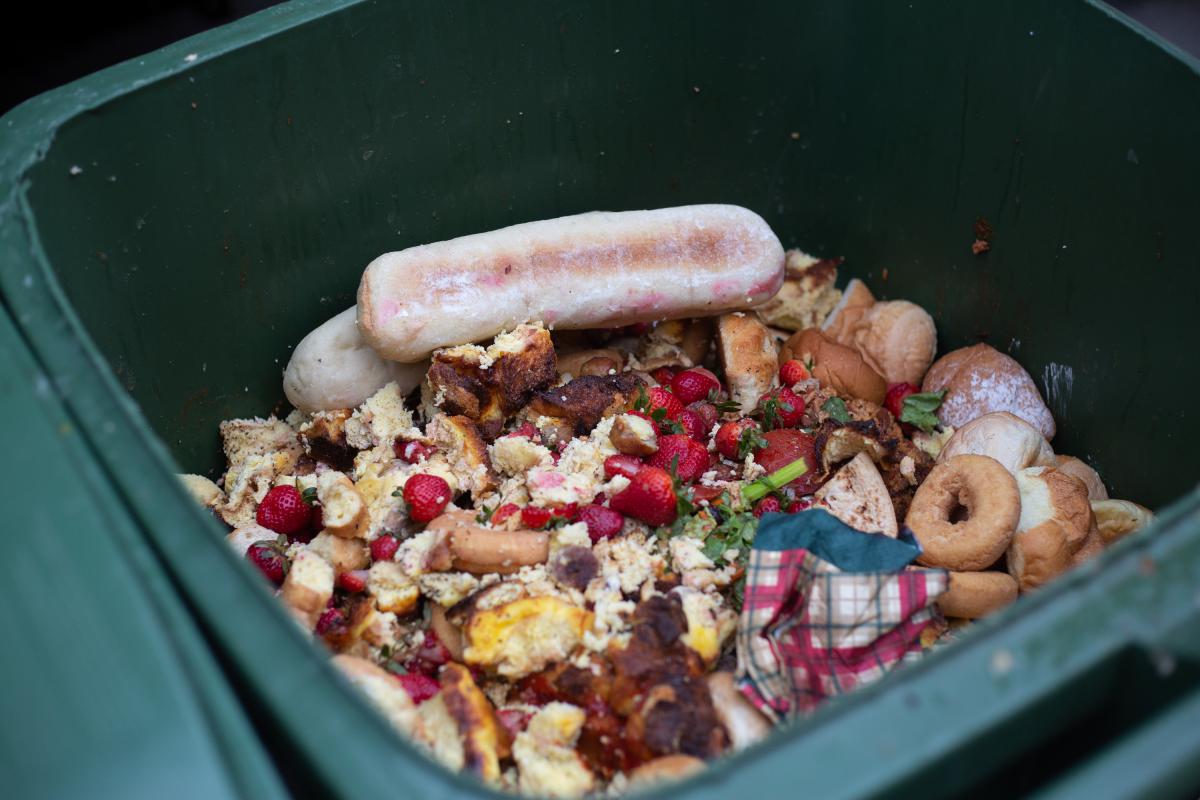Episode 149: The Next Water Contamination Crisis; High-Octane Birding In Massachusetts
This week on NEXT:
We’ll hear about how PFAS chemicals got into the milk supply at one Maine farm.
Plus, a look at waste laws around New England.
We’ll also learn about how efforts to save one local butterfly ended up helping another. And, a 24-hour birding competition in Massachusetts. Finally, we’ll talk to citizen scientists in Vermont.
It’s NEXT.
*NHPR’s Annie Ropeik is guest hosting the show this week.
Photo at the top of the page: Alex Williams, with Blue Earth Compost, loads barrels of food waste into a truck during a recent food scrap pickup run in Hartford. Photo by Patrick Skahill for Connecticut Public Radio
How PFAS Chemicals Got into the Milk at a Maine Farm

Arundel farmer Fred Stone, who says his cows were contaminated with PFAS chemicals. Photo by Patty Wight for Maine Public
PFAS stands for per-and polyfluoroalkyl substances. The chemicals were commonly used for decades in all kinds of household and industrial products, especially firefighting foams. They’ve been found in water and landfills around the country. And they have been linked to serious health effects.
The state of New Hampshire announced at the end of May that it is suing the makers of PFAS chemicals for contaminating the state’s drinking water. At a press conference, officials announced two lawsuits against companies – among them, 3-M and Dupont. New Hampshire’s attorney general Gordon MacDonald said the goal is to recoup damages for the PFAS contamination that’s spread across the state. New Hampshire is due this month to propose new limits on PFAS in drinking water.
But what if drinking water wasn’t the only place you could ingest these chemicals?
A recent case in Maine found PFAS chemicals in the milk supply at a local farm in Arundel. To learn more about how the chemicals got into a milk supply, and how other states around New England are reacting, we invited Kevin Miller, a reporter for the Portland Press Herald, and David McCay, a land use and environmental lawyer for Mirick O’Connell Attorneys at Law, in to join us.
*CORRECTION: The owner of the farm’s name is Fred Stone, not Frank Stone.
How One Family is Standing Up for the Climate

Elizabeth Pinsky walks along side of her son Ben while he rides his bicycle home along Elm St. in Somerville. Photo by Jesse Costa for WBUR
Climate change, for many, is a big, distant, looming threat, but not something to tackle or even think about every day. At least, that’s what Dr. Elizabeth Pinsky used to think. Then last October, Pinsky clicked open a UN report that describes a world wracked by drought, flooding and extreme heat by 2040. Pinsky, a pediatrician and child psychiatrist, gave herself some therapeutic advice: do something. Now every daily action and decision for Pinsky and her family includes this question: what will help protect the earth.
WBUR’s Martha Bebinger met Pinsky outside a T station one afternoon to see what life looks like with climate change front and center.
New England’s Evolving Recycling Market

Bales of recyclable aluminum and steel cans ready to be shipped at the Chittenden Solid Waste District. Photo by John Dillon for VPR
It’s not just families like Pinsky’s that are worried about reducing waste. Some New England states are taking matters into their own hands, banning materials that can’t be recycled. Maine, for example, recently banned styrofoam. But how much do these bans actually make a dent in the waste produced? And now, with China not accepting recycling from the US anymore, what does that mean for the future of waste processing here?
We invited Duncan Watson in to tell us more. He’s the Current President of the Board of Trustees of Northeast Resource Recovery Association and the Assistant Public Works Director and Solid Waste Manager for the City of Keene, New Hampshire.
New Composting Initiative in Connecticut

Unused food picked up by Blue Earth Compost at The House of Bread in Hartford. Photo by Patrick Skahill for Connecticut Public Radio
In addition to plastics, another area where there’s a lot of waste? Food. Estimates from the EPA say nearly 40 million tons are landfilled or incinerated each year. And in Connecticut, food waste is second only to paper in terms of what people toss in the trash. So more than five years ago, a new state law began requiring large businesses to recycle their leftover food. The hope was to divert organic waste from the trash bin while enticing recyclers to build in the state.
But as Connecticut Public Radio’s Patrick Skahill reports, getting that recycling industry started has been a challenge.
How Efforts to Save One Butterfly Helped Another
It’s been about 20 years since the creation of a special preservation area for New Hampshire’s state butterfly, the Karner blue. Since then, the once-endangered Karners have rebounded in their pine barrens near the Concord municipal airport. And they’re not the only ones.
Another similar butterfly is thriving in the Karner blue easement. Scientists hope what they learn from it could help protect the species nationwide. NHPR’s Annie Ropeik Reports.
Massachusetts’ Birders Participate in A 24-Hour Competition
New England has lots of different kinds of special habitats, that are home to so many different species – if you just know where to look. Enter, the Mass Audubon Bird-a-thon. Each year, the best birders in Massachusetts participate, and it’s not as peaceful as it sounds… In fact, there’s intense competition to see who can spot the most different kinds of birds around the state.
Billy Baker is with us now to tell us all about the competition, he’s a reporter on the Boston Globe’s narrative team and the author of the recent article, “‘Bird nerds’ assemble at Mass Audubon’s Bird-a-thon.”
Citizen Scientists in Vermont

Citizen scientist John Jose, of Montpelier, stands in a vernal pool in Hubbard Park. He and Molly Murray, of Calais, are taking temperature and depth measurements as part of the Vermont Center for Ecostudies’ statewide Vernal Pool Monitoring program. Photo by Amy Kolb Noyes for VPR
There’s been some unusual outdoor activity around Vermont this spring. In Chittenden County, people have been placing bowls of soapy water in fields, trying to catch bees. Elsewhere, people armed with clipboards have been counting amphibian egg masses and insect larvae in vernal pools.
But it’s nothing to be concerned about. It’s just the work of volunteer citizen scientists.
Send Us Your Favorite New England Music
About NEXT
NEXT is produced at Connecticut Public Radio
Guest Host: Annie Ropeik
Producer: Lily Tyson
Digital Producer: Carlos Mejia
Senior Director: Catie Talarski
Contributors to this episode: Patty Wight, Martha Bebinger, Patrick Skahill, Annie Ropeik, Amy Kolb Noyes
Music: Todd Merrell, “New England” by Goodnight Blue Moon, “Crazy” by Goodnight Blue Moon, “Fresh Like a New Dollar” by West End Blend, “Get By” by West End Blend
New to NEXT? You can find every episode or one you missed within our archives.
We need your feedback! Send critiques, suggestions, questions, and ideas to next@ctpublic.org. Help us spread the word! If you like what you hear, rate and review us on iTunes.
Follow us on Facebook and Twitter.





